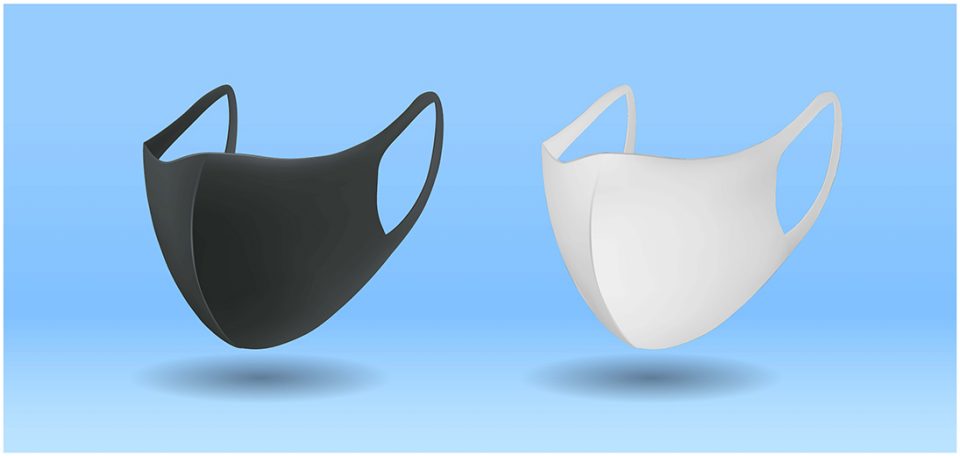Editor’s note: COVID-19 has uniquely impacted communities of color and their lives and ministries. In this series, we will feature ELCA Racial Justice reflections from each of the ELCA Ethnic Specific and Multicultural Ministries associations, focusing on racism and racial disparities amid the coronavirus.
Authors’ note: Shari Seifert and Jessica Harren are members of the European Descent Lutheran Association for Racial Justice (EDLARJ). EDLARJ works in solidarity with ELCA communities through witness, partnership and trainings to confront racism. Its tagline is “Awaken Hearts, Inspire Transformation and Confront Injustice.”
We are writing this because we see how the effects of this pandemic are compounded by the effects of systemic and everyday racism. The disparities seem even more stark now. Since much of our nation is highly segregated, it can be hard to see beyond what one is personally experiencing. We both have work and personal relationships with people of other races, so we are acutely aware that, for generations, our societal structure has accorded resources to some groups more than to others. We hope this post will awaken hearts and lead to transformation and more folks confronting the injustices this pandemic is making clear.
We have white privilege. During this pandemic, we are living lives very different from those of people of color (POC)—it’s a tale of two pandemics. If we are outside, we are unlikely to be stopped by police. If we go to the store in a mask, we are assumed to be people caring for our neighbors, not criminals. When we go grocery shopping, no one spits on us because we appear Asian. Even white folks and POC belonging to the same social class will experience this pandemic differently.
For the first time, we are feeling restrictions to our movement and our access to medical care. Many POC have known these restrictions for their entire lives. Many white folks are not used to having restricted movement and are now protesting en masse in public. Many POC live in food deserts. We are used to constant access to anything we want.
This doesn’t mean our lives are not extra-complicated right now. Jess is having to do online school with a child who had had accommodations for various medical and neurological conditions. Jess lives with disabilities and is more likely to get very sick if she gets COVID-19. She and her family are grieving the loss of vacations and school. And yet, for a family of color, even with similar resources, life is harder.
We don’t have to do anything to keep this unjust system in place.
For example, the illustrations in Jess’s child’s books for online learning are mostly of white kids. The assignments are culturally relevant. When Jess goes to the store to pick up medicine, no one assumes she’s a criminal or spits on her. The police don’t stop her for being out, because her neighborhood isn’t policed.
Shari is working from home, sharing a workspace with her oldest son, who is in college and has autism and anxiety. He has access to a therapist through telemedicine. Her younger son is doing high school from home. Both boys have their own computers and can easily get help with schoolwork. Days when grocery orders are finally ready are celebrated! When Shari gets tired of being inside, she can play fetch in the backyard with the family dog. Running Shari’s small business of selling real estate comes with no guarantees, except that bills and Shari’s assistant still need to be paid. Sometimes it’s hard not to worry and to fall into scarcity mode.
The reality is that many of Shari’s clients are less affected by the pandemic and that business is continuing—and if her business falls on hard times, there are family members who can help. For many POC, staying home from work is not an option, there is not good access to health care, access to healthy food is harder, not every child has their own device for doing schoolwork, there may not be family members who can help financially, housing is more dense and there is not a private backyard to play with the dog in.
We are all struggling now. People are dying alone, their families are being denied the solace of funerals, grandparents can’t hug their grandchildren, people have lost jobs, businesses are shuttered and we all face uncertainty. These things are all true, yet entrenched systemic racism still gives white people of all classes advantages in this pandemic.
This crisis lands on people in very different and important ways. Not all white people are rich and not all people of color are poor, but the majority of white Americans are middle-class homeowners who live in stable communities.
The disproportionate number of POC dying is heartbreaking. We don’t have to do anything to keep this unjust system in place. Change is stubborn and requires faithful and persistent effort such as speaking up at racist jokes or memes online, listening to and following POC (we recommend this by Jeremiah Bey Ellison), shifting money to POC-led organizations for racial justice and praying for the whole body of Christ, including our POC friends. If you still have an income or access to money, consider supporting a POC-led organization in your community.
We pray that the Holy Spirit will enter our hearts and move us to action.






